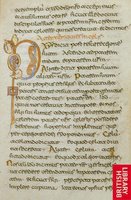 Previously, I pointed out the inconsistency Roman Catholics face when positing Pope Damasus decreed the final canon of Scripture in the year 382. Recall, Tiber Jumper on his blog Crossed the Tiber stated:
Previously, I pointed out the inconsistency Roman Catholics face when positing Pope Damasus decreed the final canon of Scripture in the year 382. Recall, Tiber Jumper on his blog Crossed the Tiber stated:“It was at the Council of Rome in 382 that St. Pope Damasus decreed the final canon of Scripture. Often, it is said that the Council of Trent codified the canon of Scripture after the reformation, but the evidence points to this early council as the when the canon was finalized. The Council of Trent reiterated the canon in a response to the reformer's revision of the historic canon.”
There are a few key words in this statement, particularly “codified” and “reiterated”. “Codified” is a term pertaining to arrangement in a systematic form. “Reiterated,” means, “to do over again”. What the statement above is saying is that Pope Damasus at the Council of Rome “codified” or “finalized” the final arrangement of the Canon, while Trent “reiterated” the Canon, or just declared the same thing over. In other words, the Roman Catholic Church, according to Tiber Jumper, needed to say the same infallible thing twice. Perhaps the news of the Canon wasn't disseminated well enough. Or, perhaps there was not an infallible pronouncement on the canon for the Roman church, even as late as the 16th Century.
Contrary to the red words above, the New Catholic Encyclopedia states:
"According to Catholic doctrine, the proximate criterion of the Biblical canon is the infallible decision of the Church. This decision was not given until rather late in the history of the Church (at the Council of Trent). Before that time there was some doubt about the canonicity of certain Biblical books, i.e., about their belonging to the canon. The Council of Trent definitively settled the matter of the Old Testament Canon. That this had not been done previously is apparent from the uncertainty that persisted up to the time of Trent” (The New Catholic Encyclopedia, The Canon).
Here we find two Roman Catholic sources, one reputable, one the work of a layman who swam across the Tiber, saying the exact opposite thing. True indeed, Trent was a reaction to issues raised by the Reformers. However, the New Encyclopedia doesn’t make that connection, and leaves a bald statement inferring it was within the Church proper that there was “doubt about the canonicity of certain Biblical books.” In fact, this link by William Webster gives a good sampling of those rejecting the apocryphal books previous to the Reformation.
Now, I did point some of this out to Tiber Jumper. He responded:
“I certainly wouldn't take my word over the Church's position in any issue! But perhaps, the issue you find here is the language which Trent used regarding the canon vs the language I used in my post. Perhaps Trent was the first Council to use the language "infallible decision" to finally and with its apostolic authority put an end to the debate reignited when the reformers rejected the canon that had been accepted since the early Church Councils. The Catholic Church has always had dissenters within its ranks but at the end of the day, when Rome speaks, that settles it.(St Augustine )”
TJ's comments are like trying to paste two types of jello together with a thumbtack. Recall in the alleged decree from Damasus, he is reported as saying:“…the holy Roman Church has been placed at the forefront not by the conciliar decisions of other Churches, but has received the primacy by the evangelic voice of our Lord and Savior, who says: "You are Peter, and upon this rock I will build My Church, and the gates of hell will not prevail against it; and I will give to you the keys of the kingdom of heaven, and whatever you shall have bound on earth will be bound in heaven, and whatever you shall have loosed on earth shall be loosed in heaven." This type of sentiment put forth sounds strikingly like what the Roman Church says "goes".
According to Tiber Jumper, the Canon was finalized in 382, but needed to be given in “infallible decision” language at Trent. It should be immediately asked: Are there any qualified Church Historians that state this? Probably not, since most reputable Catholic historians steer clear of the Council of Rome- simply because no formal information on what took place at this Council exists in the historical record. Tiber Jumper went on to quote from the Old Catholic Encyclopedia:
“During the deliberations of the Council there never was any real question as to the reception of all the traditional Scripture. Neither--and this is remarkable--in the proceedings is there manifest any serious doubt of the canonicity of the disputed writings. In the mind of the Tridentine Fathers they had been virtually canonized, by the same decree of Florence, and the same Fathers felt especially bound by the action of the preceding ecumenical synod. The Council of Trent did not enter into an examination of the fluctuations in the history of the Canon. Neither did it trouble itself about questions of authorship or character of contents. True to the practical genius of the Latin Church, it based its decision on immemorial tradition as manifested in the decrees of previous councils and popes, and liturgical reading, relying on traditional teaching and usage to determine a question of tradition. The Tridentine catalogue has been given above."
Contrary to this statement from the Old Catholic Encyclopedia, there were indeed questions about the Old Testament canon at Trent. There was a group of scholars at the Council that were considered fairly knowledgeable on this issue. One particular was Cardinal Seripando. The Roman Catholic historian (and expert on Trent) Hubert Jedin explained “…[H]e was aligned with the leaders of a minority that was outstanding for its theological scholarship” at the Council of Trent. These men lobbied for the non-inclusion of the apocryphal books. For more information on this, see my blog entry: Who Were Some of the Best Scholars At Trent, and What Did They Think of the Apocrypha? .
Even more significant as proof that it wasn’t only Protestants questioning the apocrypha, the very prominent papal legate, Cardinal Cajetan, the very man sent by the Pope to question Luther at Augsburg, likewise denied their canonicity. In 1532, Cajetan wrote his Commentary on All the Authentic Historical Books of the Old Testament. In this work, Cajetan leaves out the entirety of the Apocrypha since he did not consider it to be Canonical. Cajetan said,
“Here we close our commentaries on the historical books of the Old Testament. For the rest (that is, Judith, Tobit, and the books of Maccabees) are counted by St Jerome out of the canonical books, and are placed amongst the Apocrypha, along with Wisdom and Ecclesiasticus, as is plain from the Prologus Galeatus. Nor be thou disturbed, like a raw scholar, if thou shouldest find anywhere, either in the sacred councils or the sacred doctors, these books reckoned as canonical. For the words as well of councils as of doctors are to be reduced to the correction of Jerome. Now, according to his judgment, in the epistle to the bishops Chromatius and Heliodorus, these books (and any other like books in the canon of the Bible) are not canonical, that is, not in the nature of a rule for confirming matters of faith. Yet, they may be called canonical, that is, in the nature of a rule for the edification of the faithful, as being received and authorised in the canon of the Bible for that purpose. By the help of this distinction thou mayest see thy way clearly through that which Augustine says, and what is written in the provincial council of Carthage.”
But really, the Roman Catholic Church didn’t first determine the Canon anyway. Eric Svendsen points out:
“The [Roman] Catholic Church did not first determine the canon. It was the Eastern Orthodox church that came up with the list of twenty-seven books [of the New Testament canon] first. The consensus by the Eastern church was decided in 367, and the twenty-seven books were included in Athanasius’ Easter letter from Alexandria. This decision was made twenty-six years before [the council of] Hippo. The Western (Roman) church accepted a canon that did not include the book of Hebrews, but eventually followed the East in including all twenty-seven books. In other words, the Roman church relied upon the Eastern Orthodox church for her canon. Far from making an infallible decision, the Roman church, at Hippo and Carthage, simply adopted the decision of the Eastern church. Therefore, the canon that we currently have is the work of the Eastern Orthodox church, which does not claim magisterial infallibility. Catholics must rely on the decision of the Eastern church and cannot claim to have determined the canon themselves.” [Source: Eric Svendsen, Evangelical Answers: A Critique of Current Roman Catholic Apologists (New York: Reformation Press, 1999), 66]
Next Entry: Why Does It Matter?













